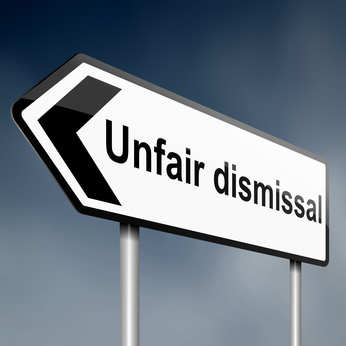When you get a new job, you might have to work a probationary period. This usually lasts 3-6 months, and allows your employer time to confirm that you are the right person for the job.
During this period, your employer can sack you if you commit gross misconduct such as fraud, theft or violence. They also have the right to let you go if you performed badly or have a poor attendance record.
But what if they tell you to leave and none of these reasons apply?
Usually, you have to work a certain amount of time before you are entitled to make an unfair or wrongful dismissal claim – in Northern Ireland, this qualifying period is one year. In GB, it’s two.
However, if you lose your job while you’re still on probation, you are still protected in certain circumstances. If so, you may be able to bring a claim for unfair dismissal and be awarded compensation for losing your job.
The qualifying period does not apply in certain circumstances, for example, if they fired you because you ‘blew the whistle’ on their activities, if you tried to assert your statutory rights or for a health and safety related reason.
In these cases, you have a good chance of winning an unfair dismissal claim.
There are others so you should seek advice (which we are happy to provide).
“I was off sick”
If you take long-term sick leave during your probationary period, your employer might extend the probation. If this applies to you, they should tell you in writing.
They might also ask your consent to get a medical report about your condition. This will help them make your workplace more suitable. It will also help them assess the chances of you taking more sick leave in future.
If you were off because of a disability, and you lose your job, it could count as discrimination.
“Was it discrimination?”
If you were dismissed because of a protected characteristic, it counts as automatic discrimination. These include your: age, race, sex, disability, and sexual orientation, marriage & civil partnership, pregnancy & maternity, gender reassignment, religion & belief.
Procedure your employer should follow
While you’re working your probationary period, your employer should explain the standards you need to meet. Ideally, they will support you and train you to help you do a good job.
If they are considering terminating your contract, your employer should invite you (in writing) to a probationary review meeting. They should explain that you can bring a workmate or trade union representative with you.
At this meeting, your employer should detail their concerns, and provide evidence to support their complaints.
You should be given the chance to respond.
They will then decide whether to extend the probationary period or terminate your contract, and should send you the decision in writing.
They should also tell you that you have the right to appeal and the latest date you can do so (this might be stated in your contract of employment).
What this means to you
If you are dismissed during your probation, you should be paid for your notice period plus any holiday pay that has accrued so far.
Check what notice period you are entitled to (this is usually less while you are on probation). For example, if you’ve been working there for one month or more, you are entitled to at least one week’s notice.
In summary, your employer must treat you fairly and consistently with other employees. If they don’t follow the correct procedure, it gives you a better chance of winning your case.
If you have any questions, please ask. We’ll be happy to help.
Further reading
For more information on this subject, you might find our other articles useful:
- Exemptions to unfair dismissal qualifying period
- Have I been unfairly dismissed?
- What constitutes unfair dismissal?
- Who can claim for unfair dismissal?
- So you won your unfair dismissal case. What next?
Need help?
For a free initial review of your case, call 0808 168 7288 or complete a Free Online Enquiry.
We have already helped thousands of people to win millions of pounds in compensation.
You have a choice of ways to pay, including ‘no win, no fee’.
